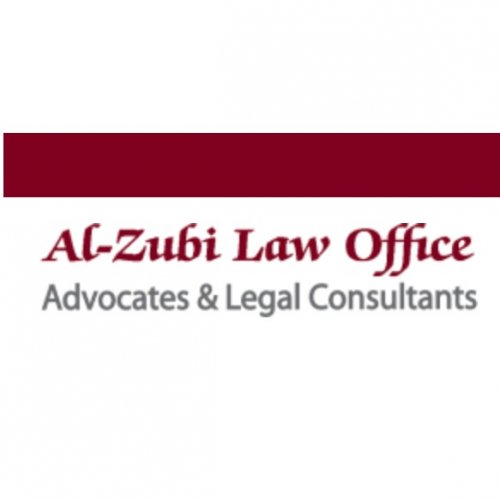Best Franchising Lawyers in Palestine
Share your needs with us, get contacted by law firms.
Free. Takes 2 min.
Or refine your search by selecting a city:
List of the best lawyers in Palestine
About Franchising Law in Palestine
Franchising in Palestine has become increasingly popular as entrepreneurs and businesses seek to expand their market presence. However, due to the unique political and economic landscape, franchising in Palestine carries specific challenges and opportunities. Understanding the legal framework is crucial for both franchisors and franchisees to ensure compliance and protect their interests. The regulatory environment may not be as developed as in other regions, requiring stakeholders to navigate these waters with informed guidance and legal assistance.
Why You May Need a Lawyer
Engaging in franchising can benefit significantly from legal counsel in various situations, including:
- Drafting and Reviewing Contracts: Legal agreements in franchising need careful drafting to outline the roles, responsibilities, and rights of each party clearly.
- Compliance with Local Laws: Navigating Palestine’s regulatory requirements can be complex, necessitating expert legal advice to ensure compliance.
- Resolving Disputes: A lawyer can aid in mediating or litigating conflicts that arise between franchisors and franchisees.
- Intellectual Property Protection: Ensuring that trademarks and other intellectual properties are adequately protected is vital.
- Business Expansion: Legal guidance can help in evaluating and executing expansion plans within and beyond local markets.
Local Laws Overview
The legal environment for franchising in Palestine is shaped by both local laws and Palestinian Authority regulations. Key aspects include:
- Commercial and Corporate Laws: Governing company formations, business operations, and partnership structures.
- Contract Law: Outlining the enforceability of agreements and dispute resolution mechanisms.
- Intellectual Property Rights: Protection of trademarks, patents, and copyrights is critical in franchising agreements.
- Consumer Protection Regulations: Ensuring that franchised businesses comply with consumer rights provisions.
Frequently Asked Questions
What is Franchising?
Franchising is a business model where a franchisor grants a franchisee the rights to operate a business using the franchisor's brand, products, and operational model.
Do I need a local partner to start a franchise in Palestine?
While not always legally required, having a local partner can be beneficial in understanding the market and navigating legal complexities.
What are the typical terms of a franchise agreement?
Typical terms include the duration of the franchise, fees and royalties, operational guidelines, and termination conditions.
How is intellectual property protected in a franchise arrangement?
Protection is typically provided through trademarks and patents, which should be explicitly detailed in the franchise agreement.
Are there specific disclosures required for franchising in Palestine?
While specific disclosure regulations are not well-defined, it’s advisable to follow international best practices in transparency and disclosure.
What should I do if there is a dispute with the franchisor/franchisee?
Dispute resolution options include mediation, arbitration, or legal action as per the terms in the franchise agreement.
Can I transfer my franchise rights to another party?
Transfer of franchise rights usually requires the consent of the franchisor and adherence to the conditions set forth in the agreement.
What are the common fees involved in franchising?
Common fees include initial franchise fees, royalties, marketing contributions, and training costs.
Is it necessary to register a franchise with governmental authorities?
Currently, there’s no specific franchise registration required, but compliance with business registration norms is necessary.
What should be considered before entering into a franchise agreement?
Careful consideration of the brand reputation, support systems, market potential, and legal terms is essential before entering a franchise agreement.
Additional Resources
For more information and assistance, consider the following resources:
- Ministry of National Economy: Offers information on business regulations and economic policies.
- Palestinian Bar Association: Provides access to qualified lawyers specializing in franchising and business law.
- Local Chambers of Commerce: Can offer guidance and networking opportunities for business operations in Palestine.
Next Steps
If you find yourself in need of legal assistance in franchising, consider the following steps:
- Identify Your Needs: Clearly outline your specific franchising needs and challenges.
- Research Legal Experts: Look for lawyers or law firms specializing in franchising and business law in Palestine.
- Consultation: Set up initial consultations to discuss your case and evaluate potential legal counsel.
- Engagement: Once comfortable, formally engage a lawyer to assist with your franchising requirements.
- Continuous Evaluation: Reevaluate and adapt your legal strategies as your business and the legal landscape evolve.
Lawzana helps you find the best lawyers and law firms in Palestine through a curated and pre-screened list of qualified legal professionals. Our platform offers rankings and detailed profiles of attorneys and law firms, allowing you to compare based on practice areas, including Franchising, experience, and client feedback.
Each profile includes a description of the firm's areas of practice, client reviews, team members and partners, year of establishment, spoken languages, office locations, contact information, social media presence, and any published articles or resources. Most firms on our platform speak English and are experienced in both local and international legal matters.
Get a quote from top-rated law firms in Palestine — quickly, securely, and without unnecessary hassle.
Disclaimer:
The information provided on this page is for general informational purposes only and does not constitute legal advice. While we strive to ensure the accuracy and relevance of the content, legal information may change over time, and interpretations of the law can vary. You should always consult with a qualified legal professional for advice specific to your situation.
We disclaim all liability for actions taken or not taken based on the content of this page. If you believe any information is incorrect or outdated, please contact us, and we will review and update it where appropriate.
Browse franchising law firms by city in Palestine
Refine your search by selecting a city.













